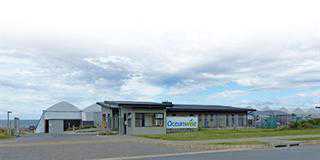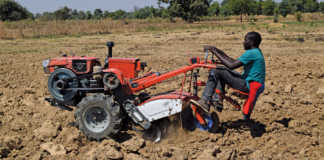International interest in manufacturing biofuel, and producing feedstock for it, is growing every day. To reap the rewards, South Africa’s Verus Farm Group (VFG) is partnering with major shareholders from various parts of Africa in a multinational company called Bio-Energy Investments (BEI).
BEI aims to establish 12 corporate farms across a number of African countries to produce food and biofuel feedstock crops in parallel.
“We’re looking for South African farmers who feel they’ve reached the maximum expansion potential on their farms here, or want to diversify their farming business into Africa, to become tenant farmers for BEI’s existing and planned African operations,” says VFG’s CEO, Justin Vermaak.
The tenant farming programme is an ideal opportunity to start farming in Africa without the start-up costs and risks of doing it on your own, adds VFG’s development officer, Johan van Huyssteen.
The advantages of farming in Africa
Over the past three-and-a-half years that VFG has been operating around Africa, the company has learned a lot about local politics, cultures, business and infrastructure. Justin firmly believes there are many more farming opportunities available in Africa than in the developed world, where farming appears to have reached capacity.
“South African farmers who are seriously interested can piggyback on our business, learning the ins and outs of farming in Africa while earning income as tenant farmers in our operations,” says Justin.
“Once their contract with BEI is over, if they want, they can then use the knowledge and connections they gained while working with our company to farm independently in Africa.”
Johan continues, “Farmers who don’t know how farming in a particular African country works put themselves at risk. For example, if they don’t understand how the local commodity markets work, traders will eat them alive.
“This is why it’s important to have a strong local partner. And because the partner has a financial stake in the business, they’ll do their best to ensure all risks are managed properly.”
BEI’s tenant farming programme
BEI makes land available to potential farmers at an opportunity cost of around US$150/ha (R1 000) and then provides production finance, a guaranteed minimum crop price and crop insurance, as well as housing on the estate.
BEI also helps farmers become legally compliant to do business in the host country. Farmers with appropriate management skills need only bring their own equipment.
“The crops tenant farmers produce are delivered to BEI, and the farmers are paid either the actual price or a guaranteed minimum – whichever is the highest, at harvesting,” explains Johan. “Production finance is deducted first. The guaranteed minimum protects farmers against any potential collapse in market price. BEI then markets or processes the crop as it sees fit.”
Contracts between BEI and its tenant farmers span three to five years, although they’ll be automatically renewed if the farmer performs to company set standards specified in the contract. These apply to typical farming practices, good environmental management methods, and how effectively farmers integrate themselves socially in the area and country of operation.
Zambian and Tanzanian operations
BEI has a 46 420ha mixed farming operation in Zambia – 13 000ha under grain crops, and 2 100ha under Jatropha curcas for biofuel production. BEI plan to expand the Jatropha crop to 12 000ha and develop a 4 000-head beef herd over the next three years.
Justin adds, “We’ve set aside 50% of the cereal crops for a tenant farming programme for commercial farmers. We use five tenants who each manage 1 000ha to 1 500ha. Two South African farmers and a Zambian farmer are currently involved. For the 2010/11 summer growing season we’ll have space for two more commercial farmers in our Zambian operation.”
In Zambia, BEI currently has a 2 million to 3 million litre per year biodiesel plant, and a bio-gassification facility that converts biomass into biogas to fuel engines.
Of BEI’s 8 000ha estate in Tanzania, 33 000ha is under a combination of flood and overhead irrigated rice lands. BEI is expanding this operation by 1 000ha over the next 16 months, and winter legumes and pulses are also being introduced. With the expansion, BEI will need two new tenant farmers to enter into contracts similar to those used in Zambia.
Operations in the pipeline
Justin says, “During 2010/11, BEI will set up new farming projects, most likely in Mozambique and the Democratic Republic of Congo. We’ll be looking for tenant farmers, but because the projects will be new, we’ll need to employ skilled people in various areas of expertise.
“All our projects must be self-sufficient because they’re in remote areas without the support and services we have in South Africa. We can’t afford expensive production halts due to lack of equipment, parts, inputs, mechanics, or skills.”
BEI also wants to work with farmers or companies who’ve identified potential production opportunities in Africa, but don’t have the resources to exploit them. In these cases, BEI wants to become a majority shareholder in African farming businesses of at least 5 000ha each, due to its economies-of-scale requirements.
BEI will give preference to potential investment opportunities with good bioenergy production potential, such as palm oil or jatropha, or old and fallow food-crop farming businesses with the potential for rehabilitation.
“BEI is already producing and marketing biofuels in Africa,” Johan says. “But understandably, none of the governments
where we operate allow existing food crops to be used as feedstock. Where BEI becomes a majority partner in an existing food-crop operation, we maintain and even increase the food crop, but also develop biofuel feedstock crop production in parallel.”
Getting started
Justin and Johan are encouraging any interested South African farmers to get in touch with them about the tenant farming programme.
However, they stress that successful applicants will need to have the skills and personality traits necessary for farming in a new and strange environment.
Contact Johan van Huyssteen on 031 467 0308 or at [email protected].













